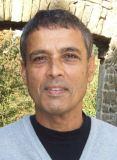Project Objectives
The project has the following objectives:
- To undertake four pilot social experimentation action research evaluation based small scale interventions in four locations in 3 member states (Prague, Czech Republic); Edinburgh (semi-independent region of Scotland),Maribor (Slovenia) and Herefordshire (UK) to generate possible improvements to current policy .These social experimentation action research pilots will have the common key features:
- Establishment of a Local Action Research Group (LARG) in each of the four locations. Key players in these LARG’s have already agreed to take part. Letters of commitment from local authorities, ESF managing authorities, NGO’s, employment services are attached as additional documents to this application. These LARG’s are multi-sectoral and multi-level governance in make-up.
- Each LARG also has identified a local evaluator. In all cases these are researchers/evaluators with established track record.
- Each LARG will undertake the following key actions:
- Undertake a base line study which captures the current policy context in the targeted areas and its impact on the targeted group.
- Implement a small scale social experimentation which is action research based .This will have a key features of having user involvement as a key element in the research/evaluation methodology.
- Produce a local evaluation report which covers the evaluation of the local social experimentation and makes recommendations in relation to implications for policy in relation to the target group.
- Participate in a transnational programme to develop a transferable methodology and framework for evaluating social experimentation actions.
- Undertake local/regional /national dissemination.
- To undertake a transnational exchange and development programme. The goals of the programme are:
- To develop a transferable methodology and framework for evaluating social experimentation actions.
- To support mutual learning and capacity building.
- To realise these two goals the transnational exchange and development programme has the following key elements:
- Three transnational workshops which will bring together members of the four LARG’s, including the local evaluators and LARG co-ordinators. The first workshop would centre on developing a shared methodology and framework for evaluating the four social experimentation actions. This would be “tested” at local/regional level. The second transitional workshop would bring together the same delegates in order to share issues and lessons emerging for the social experiment actions and their evaluations. The final workshop would bring together the same delegates to share their draft evaluation reports and implications for policy emerging.
- One transnational dissemination conference to ensure that the outcomes of the project are widely shared especially targeting EU institutions and EU networks connected to the policy issue(s).
- The process would be supported by a transnational evaluator who would also work as a “co-ordinator “ for the local evaluators and establish a series of web-based and telephonic discussions between them in relation to preparing materials for the transnational programme.
Evaluation Framework
Local Evaluator
Local evaluators are required to undertake the following actions/activities:
- To participate in their local LARG group
- To work with other local evaluators and the transnational evaluator in developing a common methodology and framework for undertaking the local evaluations of the local pilots. This needs to ensure involvement of « users ».
- To undertake the production of a base line study report
- To participate in and contribute to four transnational workshops
- To Produce interim and final evaluation reports
- To participate in 5-6 telephone/online Conferencing events during the life of the project. These would involve other evaluators, transnational evaluator and local co-ordinators when required.
- Cooperate with local coordinator to determine who needs to be involved in the evaluation process (LARG, other stakeholders, target group)
- Define evaluation objectives and questions together with local coordinator and other LARG members
- Propose an evaluation plan to the to the local coordinator and other LARG members and to other local evaluators and transnational evaluator
- Collect all files, reports, publications and any other relevant information needed for implementation of the evaluation
Transnational Evaluator
The transnational evaluator is required to undertake the following actions/activities:
- To co-ordinate the work of the local evaluators
- To work with other local evaluators in developing a common methodology and framework for undertaking the local evaluations of the local pilots. This needs to ensure involvement of « users ».
- To support the development of a common approach for the production of local base line studies
- To participate in and contribute to four transnational workshops
- To produce an interim progress report and final transnational evaluation report
- To co-ordinate communication with other local evaluators through 5-6 telephone/online Conferencing events during the life of the project . These would involve local co-ordinators when required.
- Create an online good practice data base (case studies, reports, links etc)
- Liaise with project co-ordinator.
Project management
Project co-ordinator : Saad, Haroon

Contact Details:
QeC-ERAN
Rue Vieux Marché aux Grains, 48
1000 Brussels
Belgium
Tel: +32 (0)2 524 45 45
Fax: +32 (0)2 524 44 31
E-mail: hsaad qec-eran.org qec-eran.org
|



 qec-eran.org
qec-eran.org